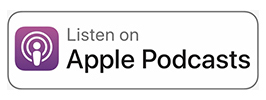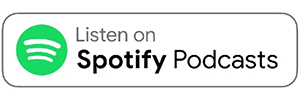Are we currently in a housing bubble?
2020 was the year of historically low mortgage rates. Then came historically high home price growth in 2021. This year, we faced towering inflation rates.
Is it all leading to a housing market crash in 2023?
While it’s one of the most heavily searched and debated questions on the internet right now, “everybody just needs to remain calm,” advises mortgage expert Arjun Dhingra. On a recent episode of The Mortgage Reports Podcast, he explains why the conditions don’t make sense for housing to implode. Here’s what Dhingra had to say.
Verify your home buying eligibility. Start hereListen to Arjun on The Mortgage Reports Podcast!
2023 won’t be a repeat of 2008
Whether you’re a homeowner or a prospective buyer, it’s understandable to have concerns and maybe even doubts about the housing market. After all, the wreckage of the Great Recession still smolders in our memory banks.
You might feel uneasy getting into the market right now given the extreme conditions of the last few years. But while drawing parallels between 2008 and now seems simple on the surface — frenzied buying and rapid price growth, followed by deflating sales — those don’t get into the underlying factors.
What it would take for a crash to happen
Dhingra says whenever he hears that we’re heading for a potential catastrophe, he looks at what it would actually take for it to happen. In this case, housing inventory would be the “canary in the coal mine.”
There would first need to be a large surplus of for-sale homes, he explains. Then, a large portion of that inventory would need to be sold at heavy discounts. Lastly, this would need to occur at every price point in the market.
Inventory has certainly rebounded this year as higher interest rates cooled buyer demand. But we are nowhere near a surplus of properties for sale.
Verify your home buying eligibility. Start hereHousing experts aren’t stressing about a recession
As the country braces to enter a recession, it’s important to remember that recessions are fairly common and come in all shapes and sizes. Experts anticipate that if the U.S. does go into one, it would be on the milder side and it would take a large amount of economic distress for housing to collapse.
“The health of the US homeowner is so strong and homeowners are sitting on so much equity in this current housing cycle compared to the one of 15 years ago.”
To tip off a market crash, “we would need massive job losses across the board from the middle- and high-income earners, who make up the majority of homeownership in the United States,” Dhingra expains.
Those homeowners would then need to list their homes en masse because they could no longer afford them. But according to Dhingra this has almost no chance of happening because of how much more stability the housing market has today than in 2008.
“The health of the US homeowner is so strong and homeowners are sitting on so much equity in this current housing cycle compared to the one of 15 years ago. It’s really the main underlying difference between the two markets and supportive as to why this market will not truly invert,” he said.
Keep in mind that home equity reached a record high in 2022 and provides borrowers with a financial cushion if they fall on hard times.
Advice for borrowers in 2023
In short, the housing market and overall economy shouldn’t be collapsing any time soon, even if they do cool off. On the bright side, the deflating pace of home price growth and rebounding inventory give buyers a little respite after dealing with a whirlwind seller’s market over the past few years.
“Yes, there are some scary times and bumpy waters ahead, but as far as housing is concerned, we should see a cooling but by no means any sort of a crash,” he said.
If you’re ready to jump into homeownership (and start the clock on your equity), talk to a local lender or real estate professional today.
Time to make a move? Let us find the right mortgage for you

